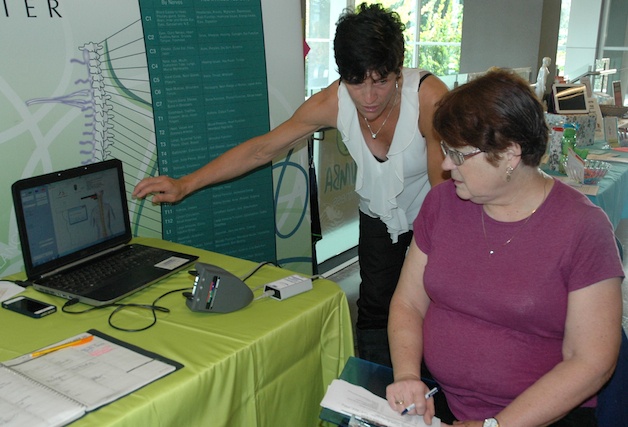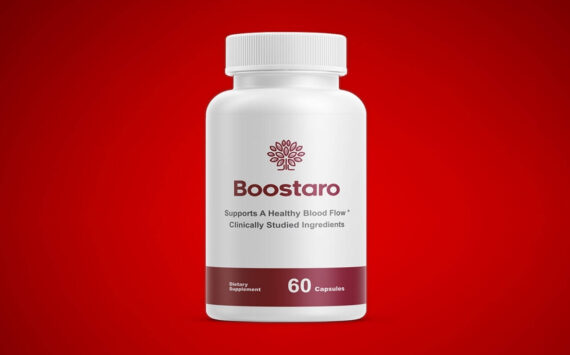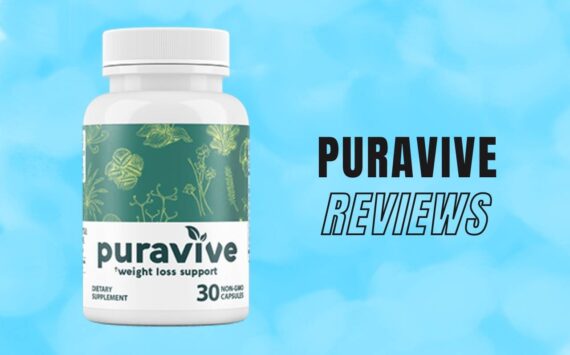ARLINGTON — More than 1,000 attendees circulated through Cascade Valley Hospital for its first Women’s Expo Oct. 11, in spite of foul weather that forced the hospital’s “Color Run” to be rescheduled.
Jennifer Egger, the hospital’s community relations coordinator, touted the event’s 70 booths, which included advice from CVH cardiac and stroke coordinator Kelly Boardley.
“Men and women have different signs and symptoms of heart attacks and strokes,” Boardley said. “Men tend to feel pressure or pain in their chests, arms or jaws, but women often experience nausea or tiredness during a heart attack, and suffer from altered mental states or headaches that are out of the ordinary during a stroke. You can’t make excuses for unusual feelings by telling yourself you’re just busy.”
Boardley encouraged women to maintain control of their blood pressure and cholesterol levels through their lifestyles.
“Change the way you cook foods,” Boardley said. “Instead of frying, try baking, broiling or roasting. People ask if there’s a magic pill, but it just comes down to diet and exercise.”
Contrary to popular perceptions that men have more heart attacks and strokes, Boardley noted that only one in six men will suffer a stroke, compared to one in five women.
“For women, strokes are the third-leading cause of death, behind heart disease and cancer,” Boardley said. “It’s the leading cause of disabilities for women. And because women tend to live five years longer than men, that’s more time for them to be susceptible to it.”
The recently opened University of Washington Maternal Fetal Medical Clinic, located at the Cascade Skagit Health Alliance, was represented by medical assistant Rachael Barron and patient service specialist Cori Davies.
Barron reported that the clinic served 40 patients in its first two months after opening in July, while Davies added that it serves 15 new patients a week now.
“It’s a consultation-only clinic, by referral only,” Barron said. “If you’ve got any reasons to believe your pregnancy might be high-risk, from fetal anomalies to family history, your health care provider can refer you to us, so that North County patients can have access to consultations locally, without commuting to Seattle.”
Davies emphasized that the clinic does not offer a full continuity of pregnancy care, for which patients would need to be transferred to Seattle.
Juanita Kolbeck, who’s also a personal trainer at the Stillaguamish Athletic Club, served as a practice representative for the Symmetry Chiropractic Wellness Center in Smokey Point, demonstrating its heat-sensitive diagnostic equipment.
“It measures the heat differences in your muscles, nerves and spine,” Kolbeck said. “The body sends heat to an area to help repair damage, so if there’s a significant heat differential, it can indicate spinal misalignment.”
Donna Marler, a mammography technician for 30 years, helped administer nine mammograms that Saturday, when none were previously scheduled. She pointed out that the American Cancer Society recommends a mammogram for women between the ages of 35-40, and once a year after that.
“Women ask me when they can quit, but I tell them, the older you get, the more you’re at risk,” said Marler, whose patients have included a 90-year-old who was diagnosed with breast cancer, but made a full recovery.
She added that women have one-in-eight odds of being diagnosed with breast cancer by the age of 80, and 70 percent of women diagnosed with breast cancer have no family history of it.
“We’re women, and we age, and those are our risk factors,” Marler said. “In the Pacific Northwest, we have a slightly higher percentage of breast cancer than the national average. We don’t know why.”
The good news is that, while 30 percent of women can expect callbacks after mammograms in their lifetimes, 80 percent of those findings are benign.
“The radiation doesn’t hurt the breast, because it’s a low dose, closer to what you’d get from the sun or the surrounding environment,” Marler said. “And while mammograms are uncomfortable, they should not be painful.”








